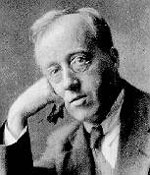
Welcome to Hyperion Records, a British classical label devoted to presenting high-quality recordings of music of all styles and from all periods from the twelfth century to the twenty-first.
Hyperion offers both CDs, and downloads in a number of formats. The site is also available in several languages.
Please use the dropdown buttons to set your preferred options, or use the checkbox to accept the defaults.

Holst’s father taught him the piano, violin and trombone, and the young musician went on to study with Stanford at the Royal College of Music from 1893 to 1898. But even when young he began to be troubled by neuritis in his right arm, which curtailed his keyboard skills. He was not well-off, unlike so many of his musical contemporaries, and he first earned his living as a professional trombone player, touring with the Carl Rosa Opera Company and later joining the Scottish Orchestra. This was of enormous value to him as a composer, as he gained a practical understanding of the orchestra from the inside, experience which characterized his flair and brilliance for orchestral writing throughout his life.
Becoming a school music teacher, he was appointed to the newly established St Paul’s Girls’ School in Hammersmith, going there in 1905, at first to teach singing, and remaining until 1934. So good were his relations with the school, and Frances Ralph Gray, the pioneering first High Mistress, that they soon built him a special sound-proofed room in which to compose. And it was at the school that he was surrounded by a team of able and willing young female admirers whose practical help in getting his music down on paper and copied, played a huge role in the evolution of The Planets in particular.
What is particularly notable, despite producing a large catalogue of music, is that Holst was in his forties before he achieved recognition—or even extensive performance—as a composer. Established after the First World War, particularly with The Planets, which became one of the most successful British orchestral works of all time, Holst’s mature career was cut short by his early death at the age of fifty-nine.
from notes by Lewis Foreman ©




